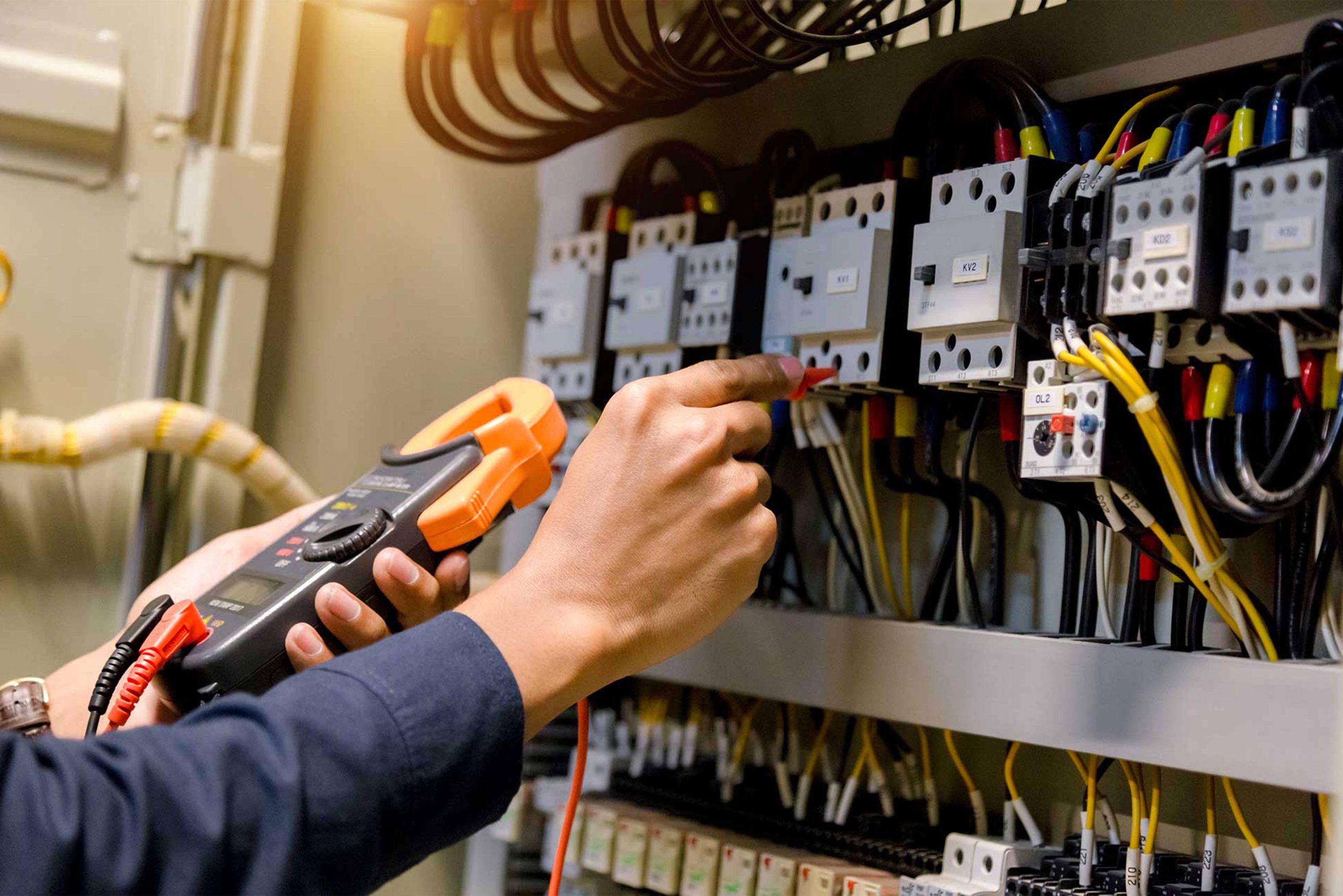Commercial buildings require proper electrical maintenance to ensure safety, efficiency, and functionality. As electrical systems are used extensively throughout commercial spaces like offices, retail stores, warehouses, etc., they are prone to developing issues over time.
Some common electrical repairs commercial buildings may need include:
Short Circuit Repairs
Short circuits occur when there is accidental contact between the live conductor and a foreign conducting material like metal, resulting in excessive current flow. This can damage wiring insulation and overheat circuit breakers or fuses.
Symptoms of short circuits include circuit breaker tripping, blown fuses, and flickering lights/outlets not working.
Electricians conduct testing to locate the root cause, usually a damaged wire or faulty connection, and replace affected parts. Proper short circuit protection, like circuit breakers, helps prevent fire hazards.
Lighting Repairs and Replacements
Commercial lighting takes a lot of abuse from daily use. Over time, ballasts fail, lamps/LEDs burn out, and lighting circuits develop issues. Electricians may need to repair or replace faulty ballasts, lamps, LED drivers, switchgear, light fixtures, and wiring as part of routine lighting maintenance. High-bay lights, exit signs, or emergency lights also need periodic replacement to meet safety codes.
Proper lighting is essential for commercial functionality, productivity, and aesthetics.
Panel Upgrades
As building power demands increase with new equipment/machinery, the existing electrical panel may become overloaded. This can lead to a circuit breaker tripping even with standard loads.
Electricians may recommend panel upgrades to a higher amperage rating and add more circuit breakers/spaces. Older panels must also be replaced if they do not meet safety standards. Upgrading ensures the panel has sufficient capacity for present and future electrical loads.
Wiring Repairs
Over years of use, electrical wiring insulation can degrade due to natural aging, rubbing against building materials, and rodents chewing. Degraded wires are prone to shorts and need replacing.
Expert electricians inspect for wiring issues like loose connections, violated boxes/conduits, and frayed/cracked wires. They replace problem wiring to meet electrical and fire codes. Proper wire gauges are also important to prevent overheating.
Surge Protection Installation
Power surges, spikes, and lightning strikes can damage sensitive commercial electronic equipment like computers, machinery controls, etc. Installing whole building surge protection systems at the main electrical panel protects equipment from surges.
Surge protectors clamp excessive voltages to safe levels before they enter the building. Electricians ensure surge protection meets UL standards based on the building’s surge withstand capabilities.
Grounding and Bonding Checks
Ensuring proper electrical grounding prevents potentially dangerous buildup of static voltages. Electricians check that all non-current carrying exposed metal conduits, ducts, pipes, etc., are grounded for safety. They verify grounding electrode connections and check ground continuity with approved testers. Any corrosion or defects are addressed to maintain the integrity of the grounding system as required by electrical codes.
Thermal Imaging Inspections
Electricians use thermal imaging cameras to detect “hot spots” from loose, corroded, or overloaded connections in switchgear and panelboards. These problem areas indicate higher-than-normal temperatures that could lead to fires.
Thermal imaging also checks transformers and busways for hot spots indicative of loose connections or overloading. Any issues caught this way are rectified to prevent equipment damage or fire hazards.
Recaulking and Repairs
Over time, the caulk and sealant around electrical equipment wear out and need replacement. Water intrusion into enclosures from cracks/holes can damage components.
Electricians recaulk around panels, splice boxes, and switchgear using appropriate caulk rated for the environment. They repair any dents gaps or replace missing panel covers/doors to protect wiring and meet electrical safety standards. Proper seals prevent equipment corrosion from moisture/chemicals inside buildings.
Conclusion
Keeping electrical systems in top shape is critical to minimizing downtime and disruption for commercial facilities. But with all the repairs discussed here, maintaining commercial building electricity may sound costly.
The reality is that proactively addressing small issues can prevent much larger problems and expenses down the road. A little prevention through regular electrical evaluations and repairs is worth more than the potential cure for emergency breakdowns. By partnering with experienced commercial electricians, business owners can have peace of mind knowing potential electrical hazards have been safely mitigated.



